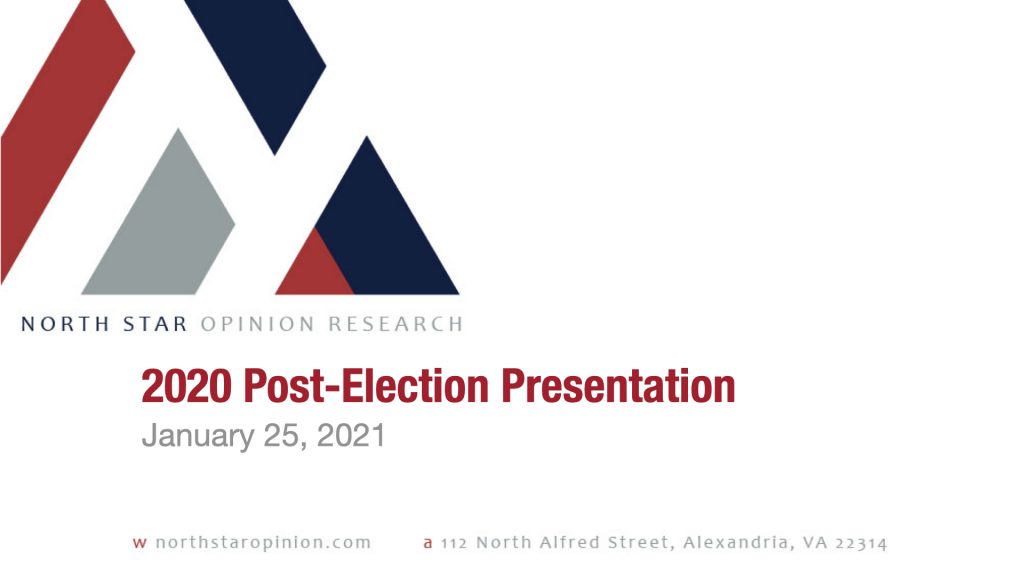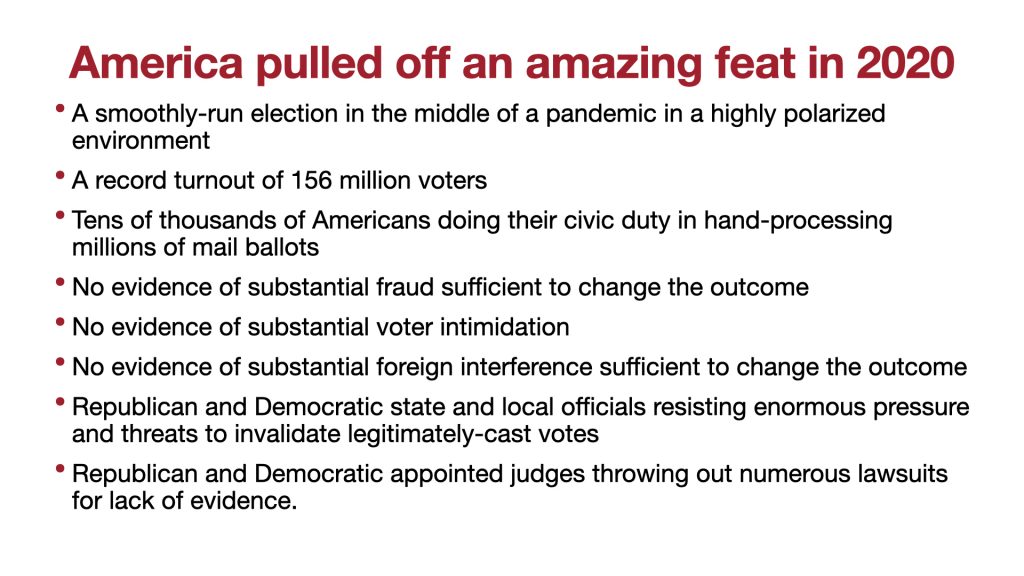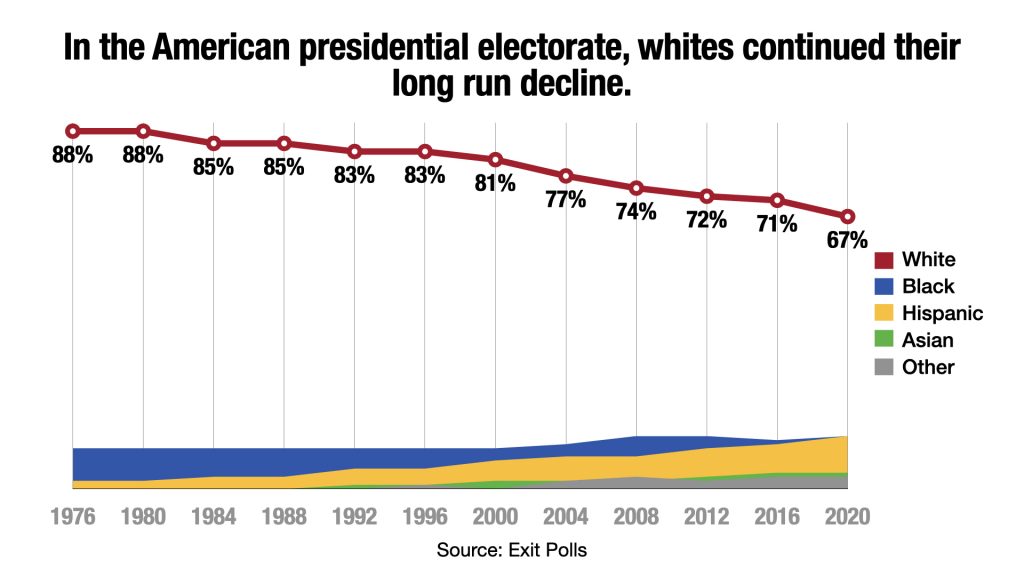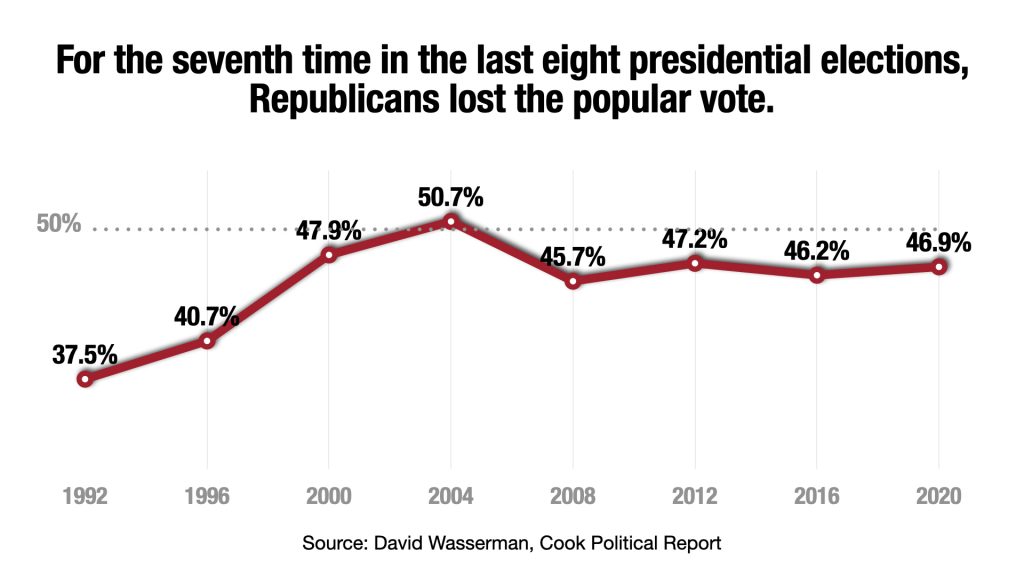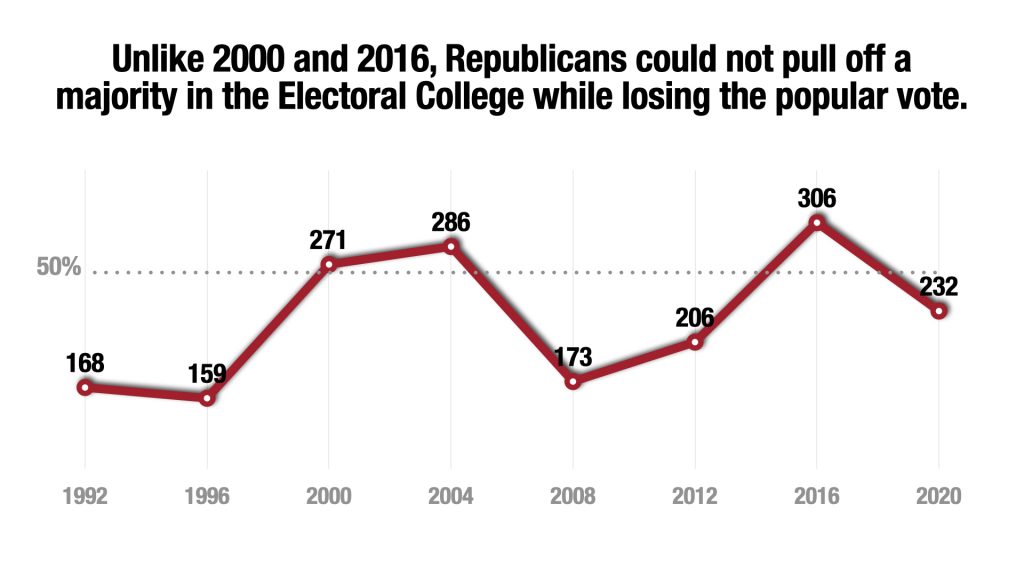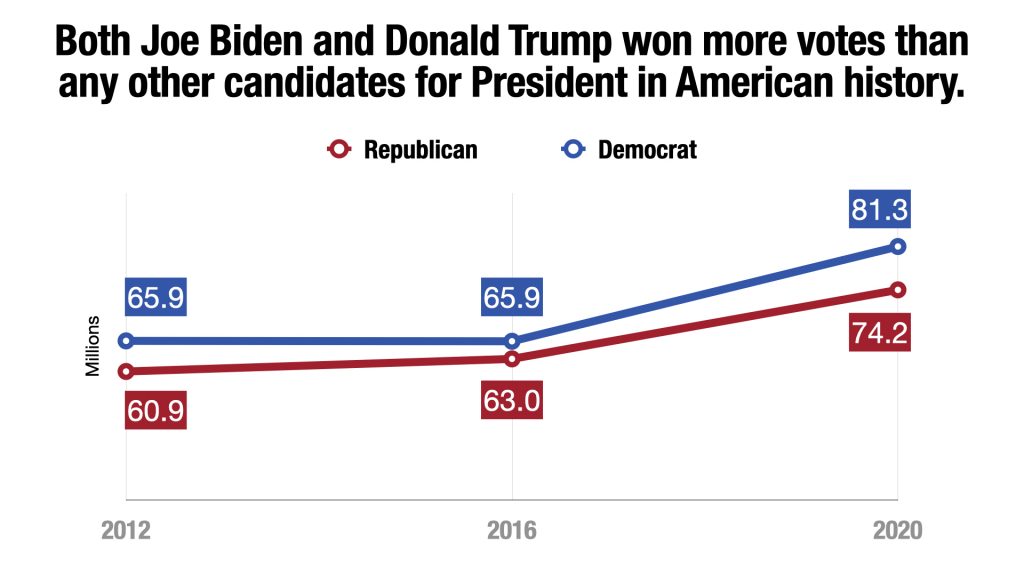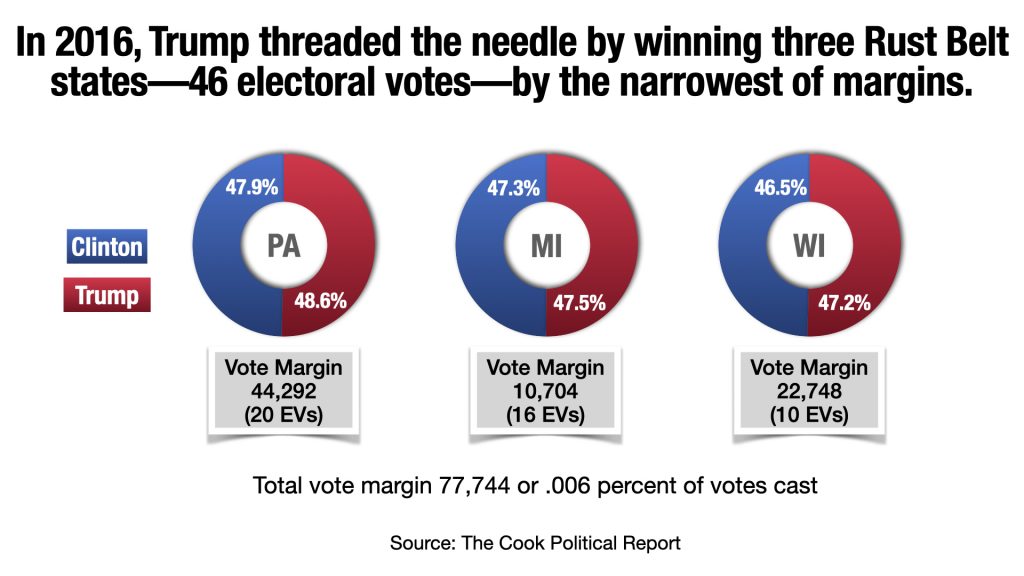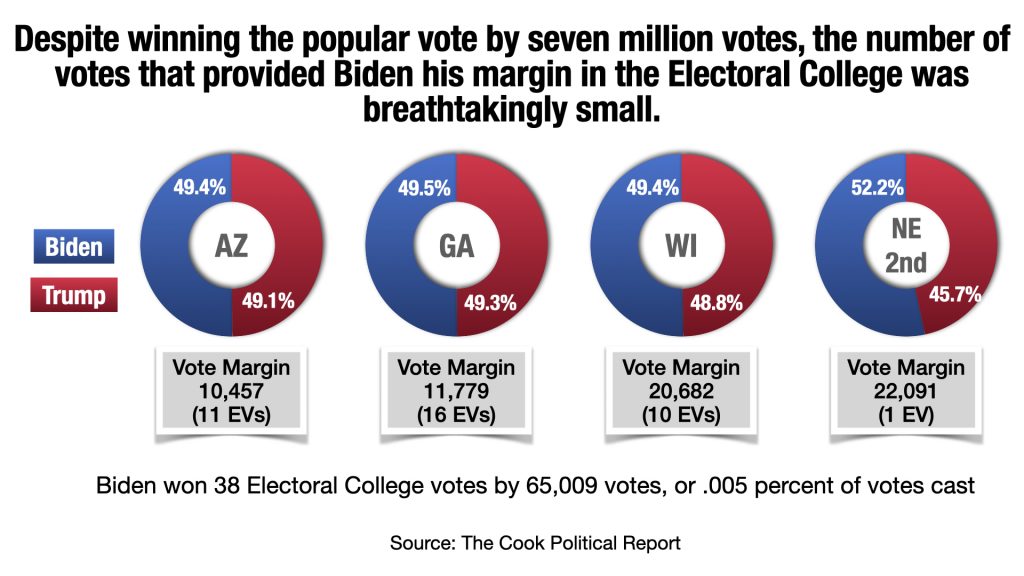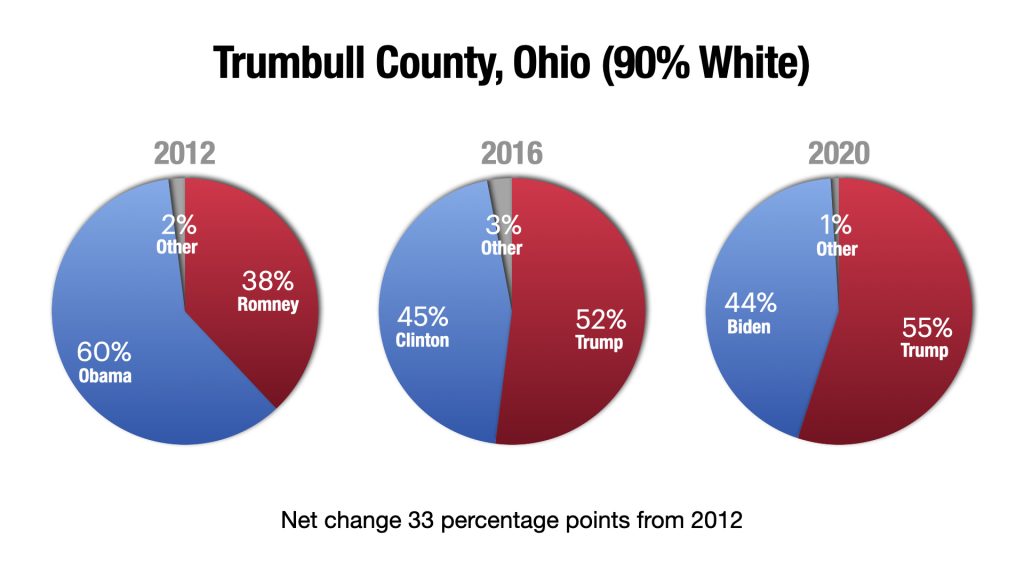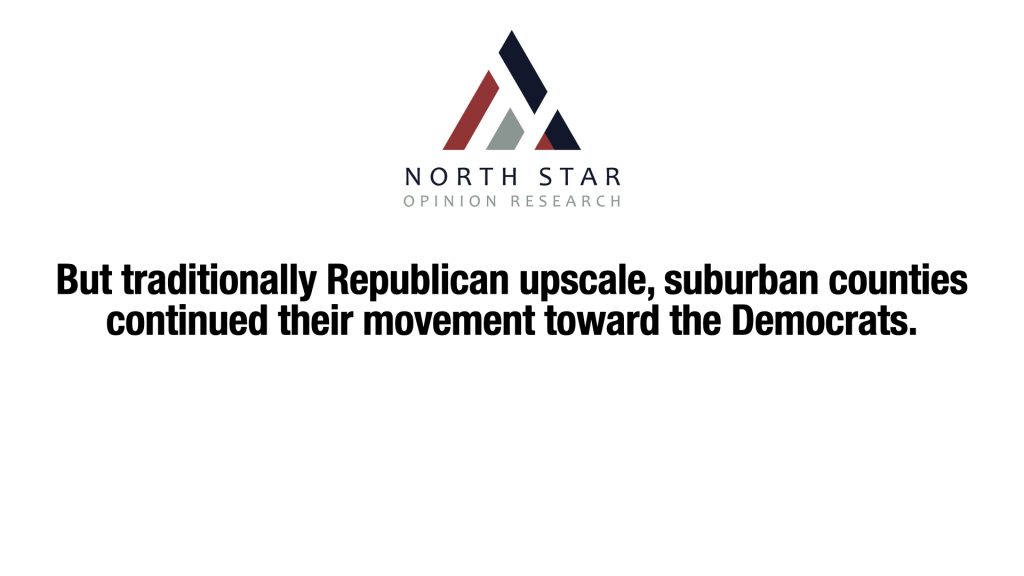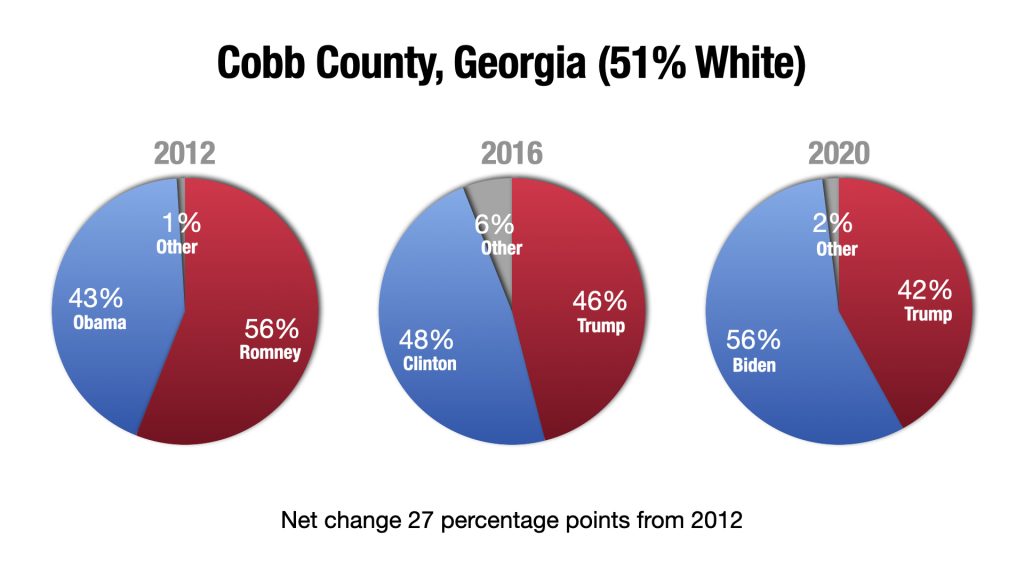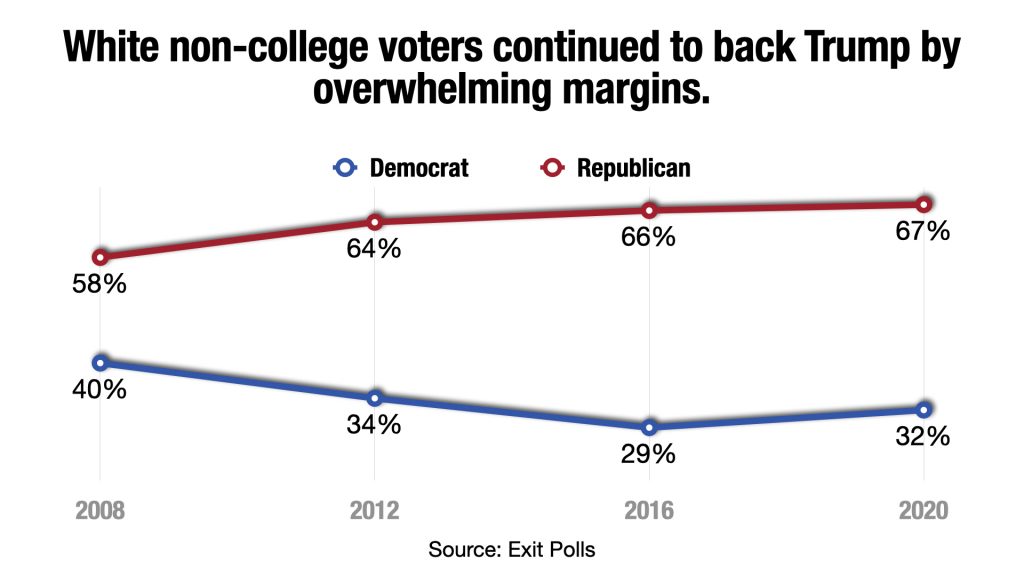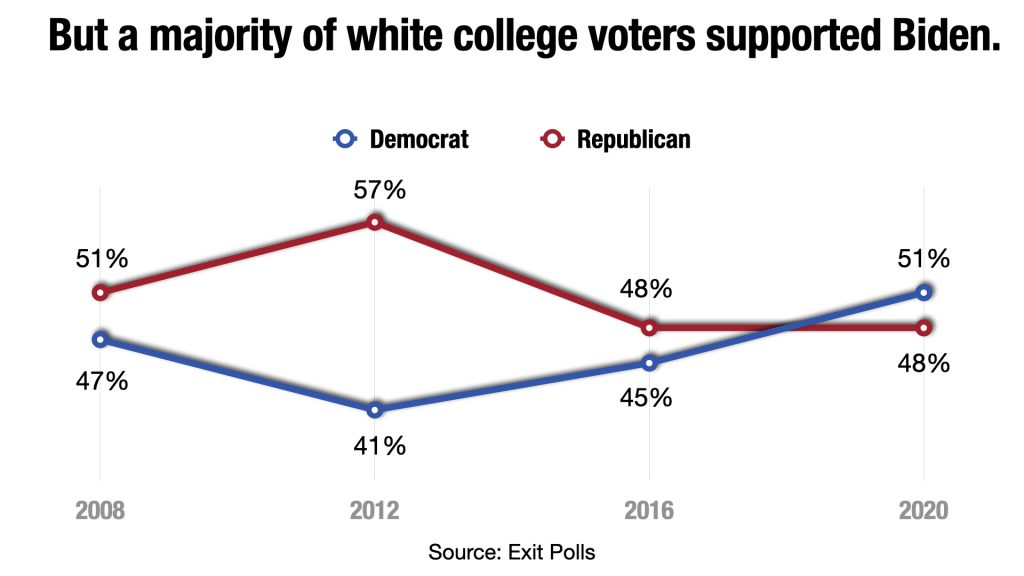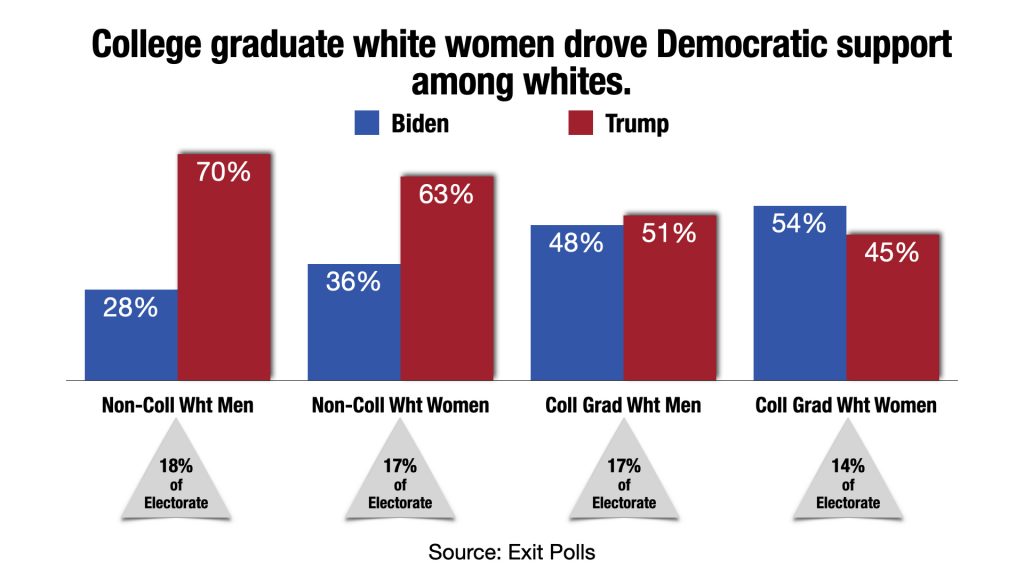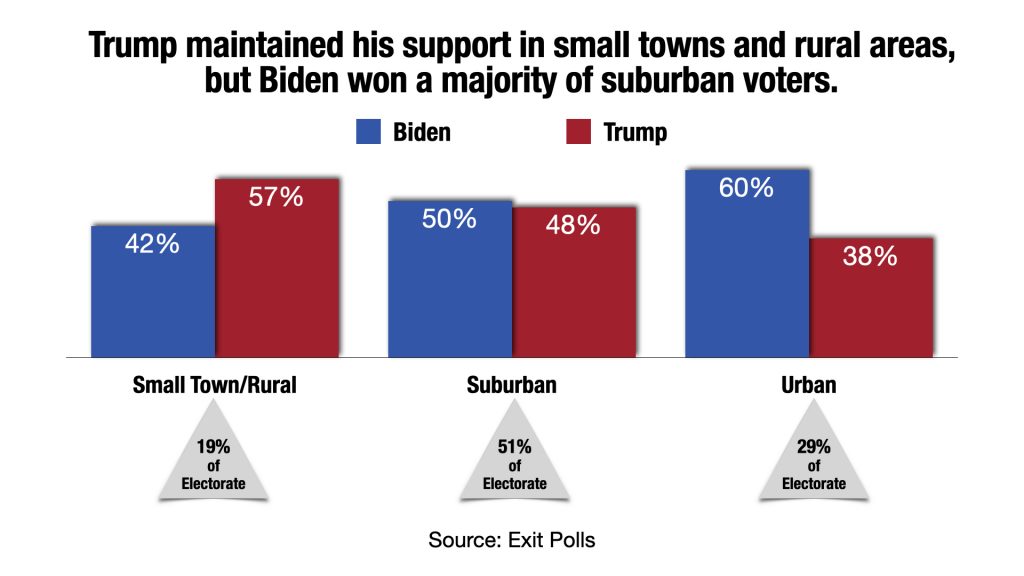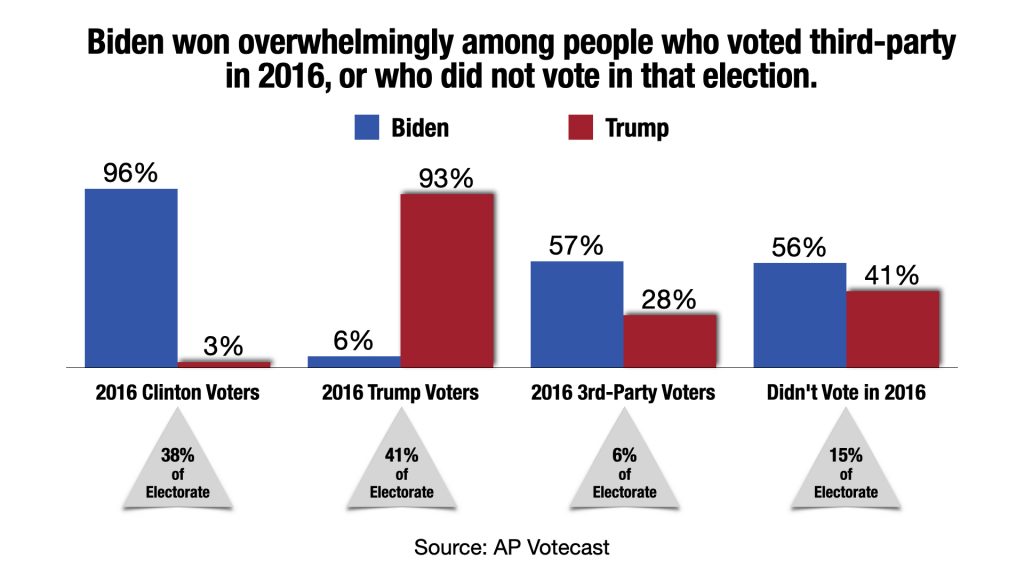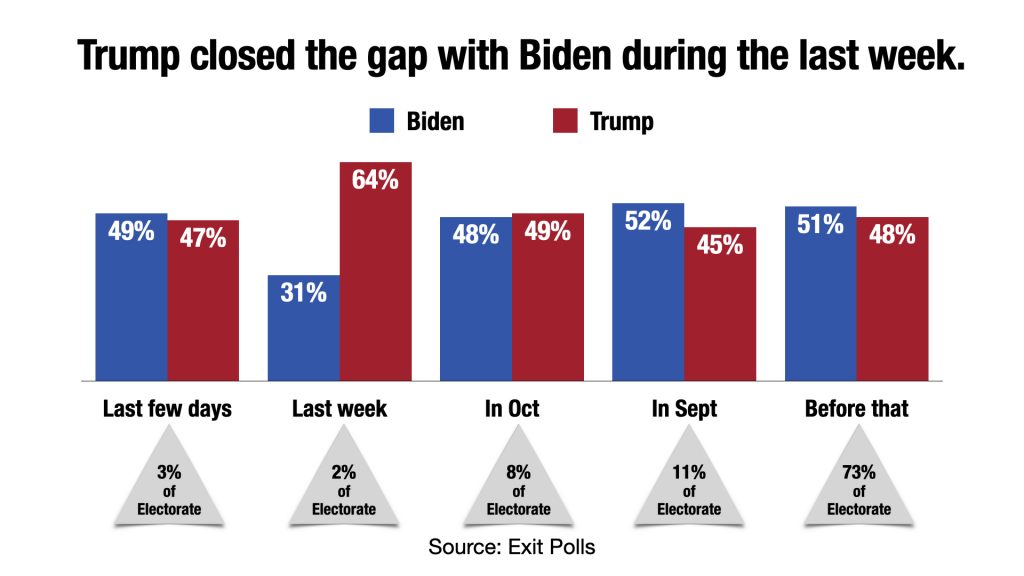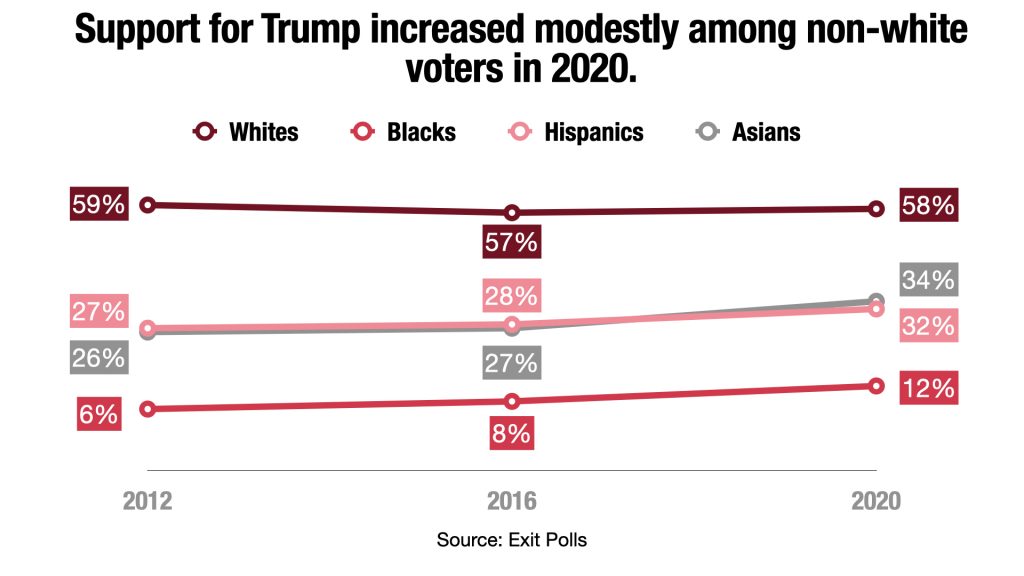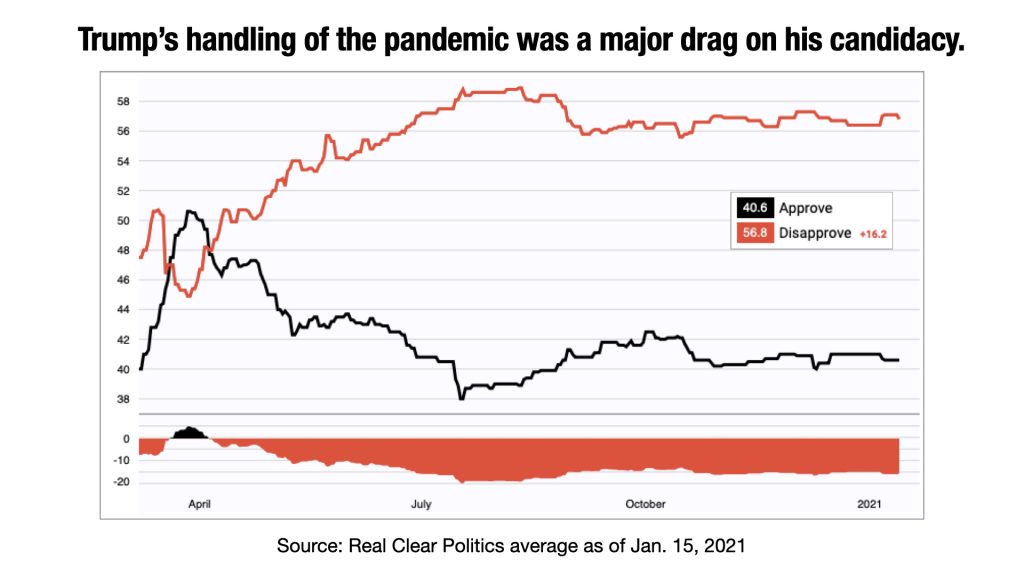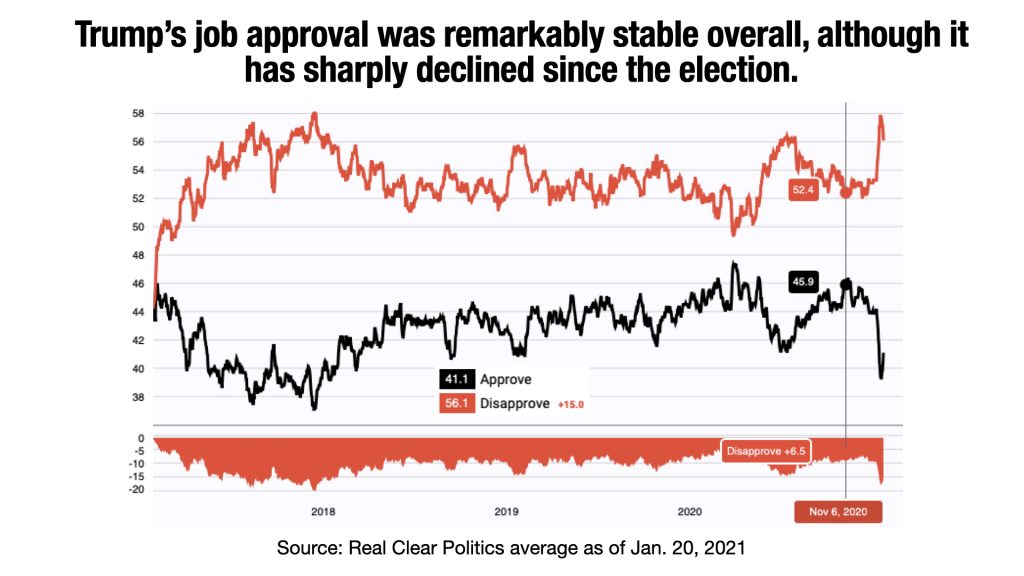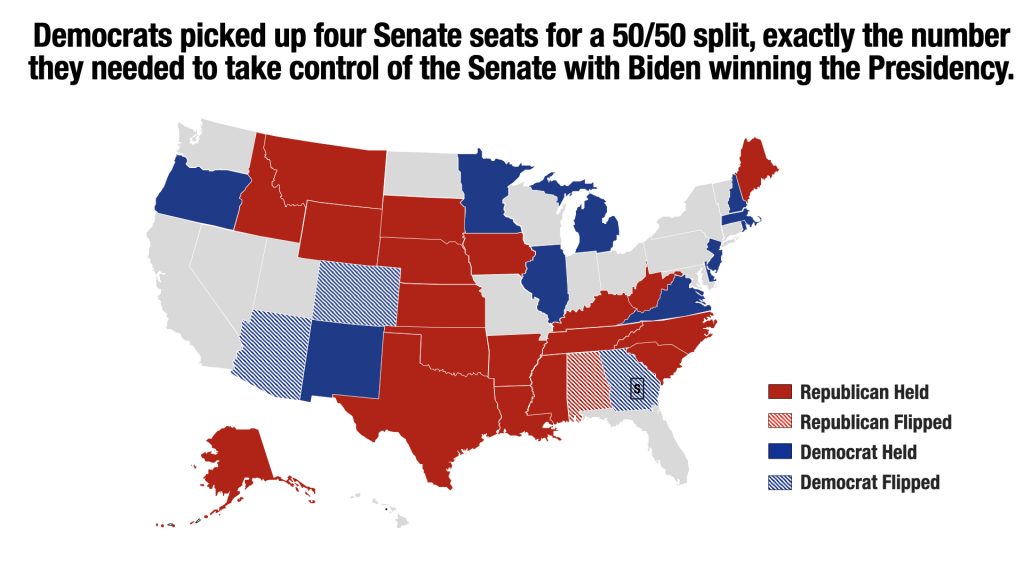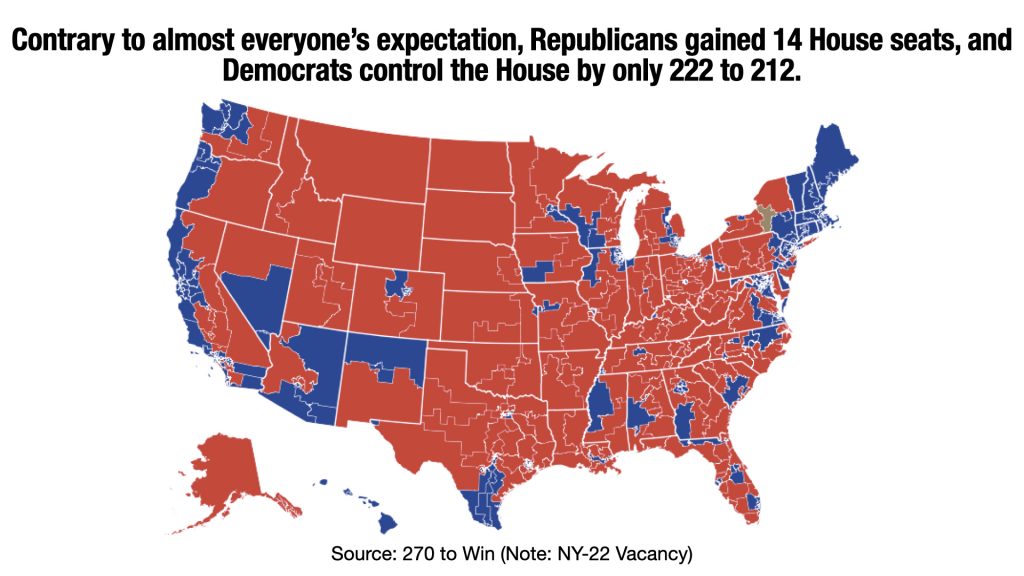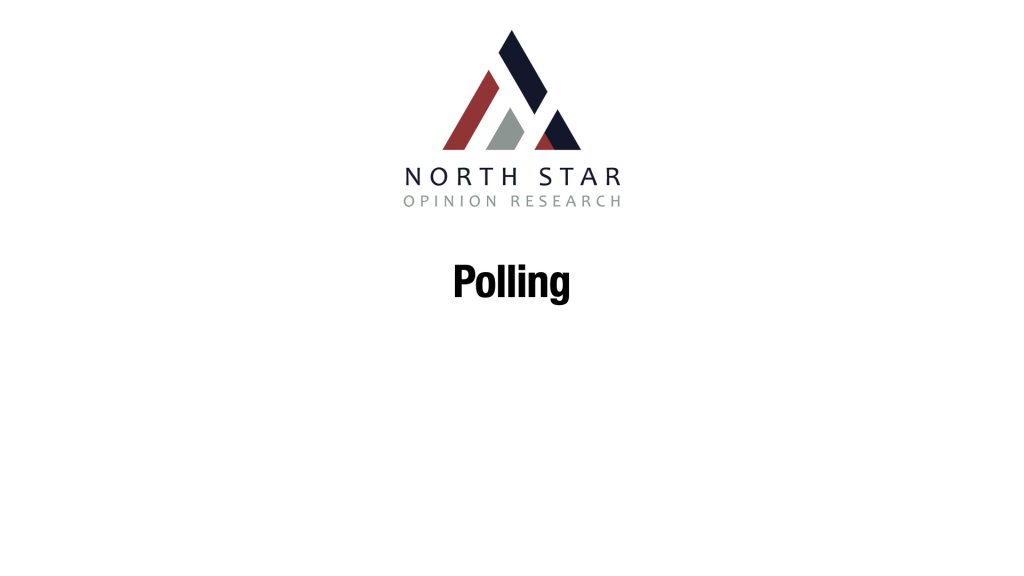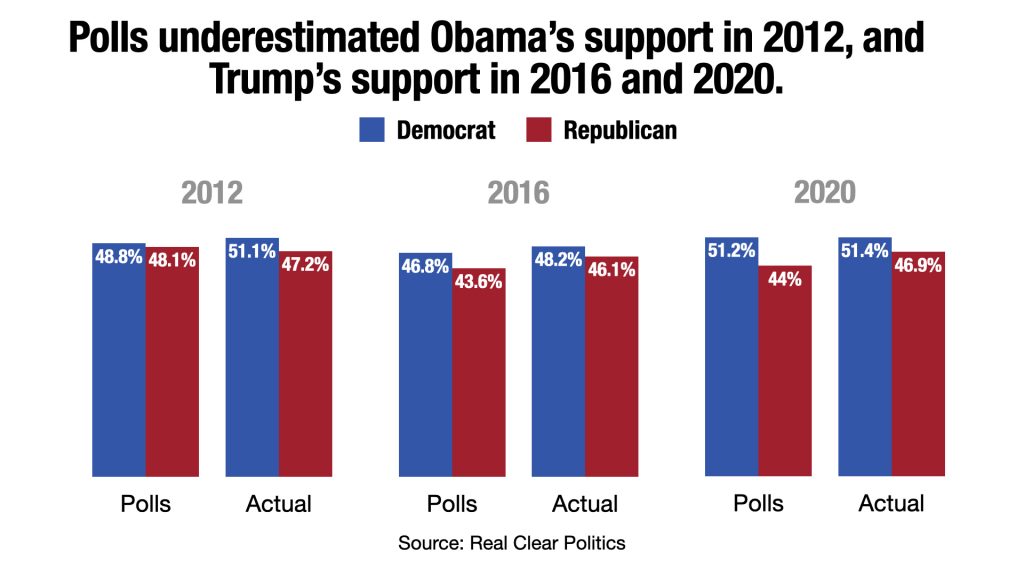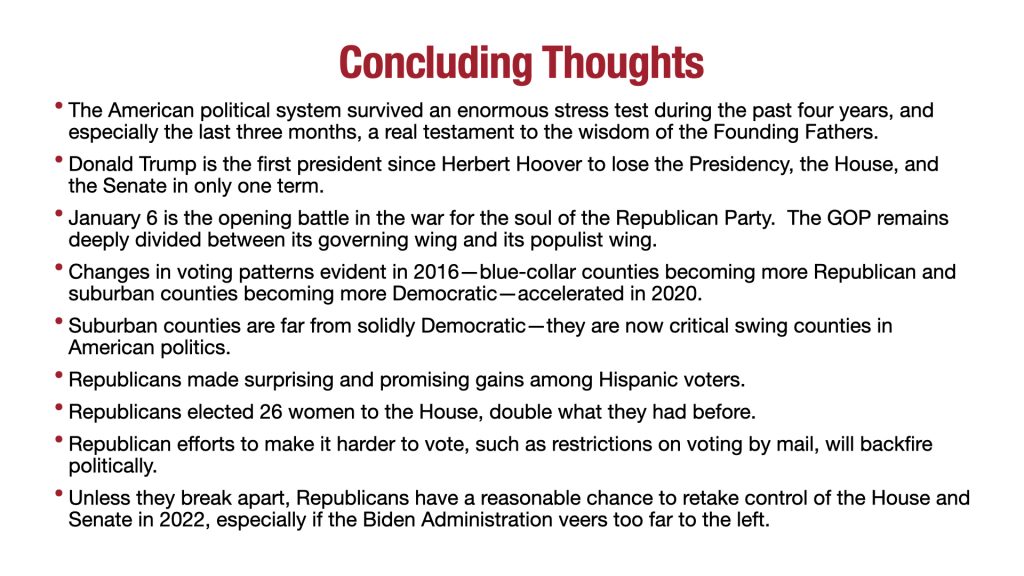Whit Ayres’ comments to Yahoo News regarding President Biden’s job approval ratings:
For Republican pollster Whit Ayres, the social welfare and climate package alone would also not restore Biden’s approval because the drop was caused by multiple factors.
Ayres, the president of North Star Opinion Research, listed the COVID-19 pandemic, a sluggish post-lockdown economy, the “unresolved” illegal migrant situation at the southern border, and the troop withdrawal from Afghanistan “fiasco” as other explanations for Biden’s polling dip.
“The ultimate problem is that he presented himself as someone who is competent at the job and knows how the system works, and the system doesn’t seem to be working,” he said.
But Ayres agreed with Democratic strategists who told the Washington Examiner the spending measure disarray would not irrevocably damage Biden’s presidency if the party eventually brokered an accord. If not, it could create “a huge headwind” for Democrats before the 2022 midterm elections, he warned.
“The president’s job approval is one of the best predictors of his party’s performance in the midterms. And if Biden’s approval stays down in the low forties, that’s a real problem for other Democratic candidates next year,” he said. “A president at 60% job approval has a lot more political juice than one at 40%.”
To read the full article, please click here.
